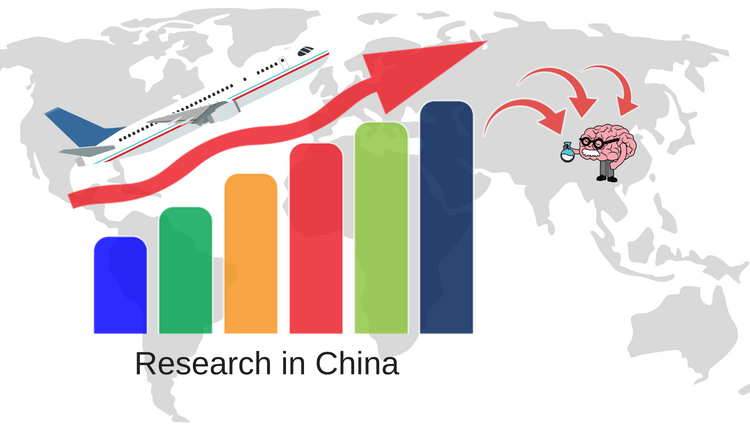U.S. Brain Drain a Major Gain for China

Over the past several decades, Chinese investment in science and research has begun to pay off. China has transformed from a country with almost zero research infrastructure into a research hub that is attracting talent from all over the world. As the US faces decreasing investment and support for science, China is ready to fill in the gap. China’s recent policies on foreign researchers have attracted some of the brightest minds in the world, thereby causing a brain drain, specifically from the US. Let us find out more about it.
China’s Scientific Rise
In 1991, China invested just 9.1 billion USD into scientific research and education. By 2015, China’s investment had increased to 408.8 billion USD. It took China only twenty-five years to become the second largest spender on domestic R&D in the world. China has also published the highest number of scientific papers in the world.
President Xi Jinping has ambitious goals for China. The country is poised to become the global leader in artificial intelligence. China is collaborating with the European Space Agency to explore the moon. It is also the home to some of the fastest supercomputers in the world. Such an environment tends to provide exciting opportunities for domestic and foreign scientists alike.
China’s Recent Policies on Foreign Researchers
China is working hard to bring in more and more international researchers into the country. The government has recently announced new, strict rules mandating open science and data. These rules intend to resolve the problems of data fraud and academic dishonesty by punishing such actions harshly. The global scientific community has responded positively to these rules. Paul Taylor, director for research integrity at Melbourne-based RMIT University, considers this to be a positive approach. He explained that these rules show how committed China is to improving research integrity and meeting global standards.
At the same time, the Chinese government and academic institutions have begun to offer enticing salary and benefit packages to foreign researchers. China is providing excellent benefits including large signing bonuses and guaranteed research funding to lure in talented foreign scientists. The country aims to recruit future scientists as well by offering opportunities such as the CAS-TWAS PhD fellowship and the Thousand Talents program. China is offering low start-up costs for entrepreneurs as well.
One Door Closes While Another Opens
While China opens its doors to the world, the US seems determined to close its own. H1B visas, which allow skilled foreign employees to stay and work in the US, have become difficult to obtain under President Trump’s rule. Growing concern over intellectual property theft is pushing lawmakers to consider restricting visas for Chinese students. The US government is reducing the role of science in general, and in response, scientists are now beginning to head towards China.
Ecologist Luke Gibson is one such example. Gibson moved from The University of Hong Kong (HKU) to Southern University of Science and Technology (SUSTech) in Shenzhen in 2017. SUSTech offered him a relocation package worth 1.6 million USD, forty times what he made at HKU. A part of the funding came from the Thousand Talents program. Gibson is now a tenure-track associate professor at SUSTech.
With a supportive research environment, exciting initiatives, and ample funding, China will no doubt continue to lure talented scholars from across the globe. Presently, the brain drain from the US is a trickle but may become a flood if the Trump administration continues its current policy trends. It remains to be seen whether the US can reverse its current path. Regardless, China’s policies point to its continued rise as a center for science.
Have you thought of studying or working in China? Which countries seem attractive to you to work in? Please let us know what you think in the comments section below.









